
The Timeless Ruins of Wat Mahathat, Ayutthaya
Wat Mahathat, located in the heart of Ayutthaya, Thailand, is a must-visit destination for history buffs and cultural enthusiasts alike. This iconic temple complex, dating back to the 14th century, offers a fascinating glimpse into the grandeur of the ancient Siamese kingdom. The temple is most famous for the serene Buddha head entwined within the roots of a banyan tree, an image that has become a symbol of Ayutthaya itself. As you wander through the sprawling grounds, you'll encounter numerous chedis (stupas) and prangs (towers) that once formed the epicenter of religious and royal ceremonies. The intricate carvings and statues scattered throughout the site speak volumes about the architectural prowess and spiritual devotion of the era. Each corner you turn reveals new ruins, each steeped in history and mystery, making it a photographer's paradise. Despite its age and the ravages of time, Wat Mahathat remains a place of great tranquility. Visitors often find themselves immersed in contemplation as they explore the silent, weather-worn structures. Don't forget to take a moment to sit and absorb the peaceful atmosphere, a stark contrast to the busy streets outside the complex.
Local tips in Wat Mahathat
- Visit early in the morning to avoid crowds and enjoy the site in a peaceful setting.
- Wear comfortable shoes as the terrain can be uneven and requires a lot of walking.
- Bring a hat and sunscreen to protect yourself from the sun, especially during the hot season.
- Consider hiring a local guide to enrich your understanding of the historical and cultural significance of the site.
- Respect the local customs by dressing modestly, particularly when entering sacred areas.
The Timeless Ruins of Wat Mahathat, Ayutthaya
Wat Mahathat, located in the heart of Ayutthaya, Thailand, is a must-visit destination for history buffs and cultural enthusiasts alike. This iconic temple complex, dating back to the 14th century, offers a fascinating glimpse into the grandeur of the ancient Siamese kingdom. The temple is most famous for the serene Buddha head entwined within the roots of a banyan tree, an image that has become a symbol of Ayutthaya itself. As you wander through the sprawling grounds, you'll encounter numerous chedis (stupas) and prangs (towers) that once formed the epicenter of religious and royal ceremonies. The intricate carvings and statues scattered throughout the site speak volumes about the architectural prowess and spiritual devotion of the era. Each corner you turn reveals new ruins, each steeped in history and mystery, making it a photographer's paradise. Despite its age and the ravages of time, Wat Mahathat remains a place of great tranquility. Visitors often find themselves immersed in contemplation as they explore the silent, weather-worn structures. Don't forget to take a moment to sit and absorb the peaceful atmosphere, a stark contrast to the busy streets outside the complex.
Iconic landmarks you can’t miss
Wat Yai Chai Mongkhon
Explore the serene beauty and rich history of Wat Yai Chai Mongkhon, a stunning Buddhist temple in Ayutthaya, Thailand.
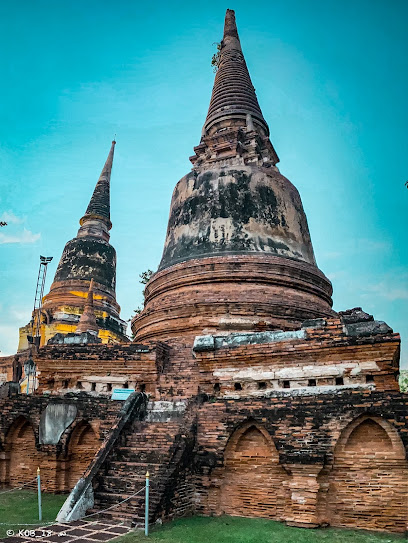
Wat Mahathat
Explore the historic Wat Mahathat in Ayutthaya, where ancient architecture meets serene spirituality in a UNESCO World Heritage site.

Wat Phra Si Sanphet
Discover the majestic Wat Phra Si Sanphet, a historical Buddhist temple that showcases the splendor of Ayutthaya's ancient kingdom.
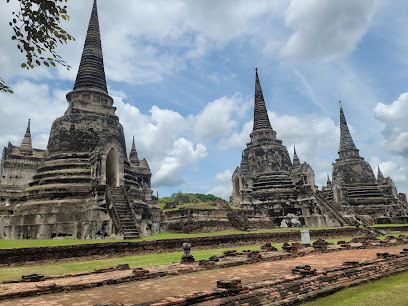
Wat Na Phra Meru Rachikaram
Explore the tranquil beauty of Wat Na Phra Meru Rachikaram, a historic Buddhist temple in Ayutthaya, Thailand, where spirituality and art converge.
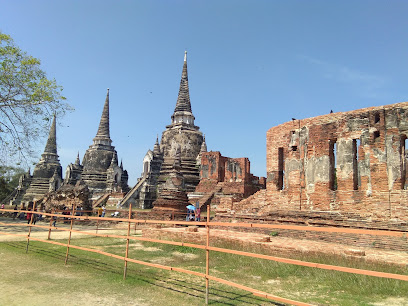
Wihan Phra Mongkhon Bophit
Explore Wihan Phra Mongkhon Bophit, a magnificent Buddhist temple in Ayutthaya, Thailand, showcasing stunning architecture and a revered Buddha statue.
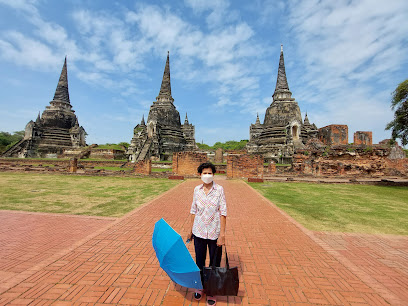
Ayutthaya Historical Park Office
Explore the enchanting ruins of Ayutthaya Historical Park, a UNESCO World Heritage Site showcasing Thailand's rich cultural heritage through magnificent ancient temples.

Wat Thammikarat
Explore the tranquil Wat Thammikarat in Ayutthaya, a historical Buddhist temple rich in culture and spiritual significance, perfect for serene exploration.
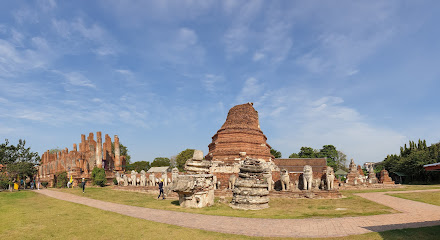
Wat Ratcha Burana
Discover the enchanting Wat Ratcha Burana, an ancient Buddhist temple in Ayutthaya, where history and spirituality intertwine in a UNESCO World Heritage site.
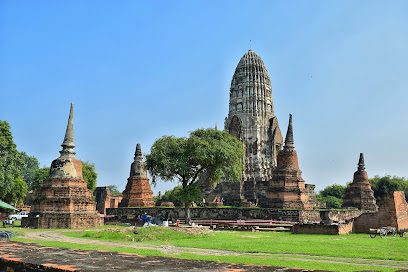
Wat Langkha Khao
Explore the historical beauty of Wat Langkha Khao, an ancient gem in Ayutthaya, reflecting Thailand's rich cultural heritage and serene ambiance.
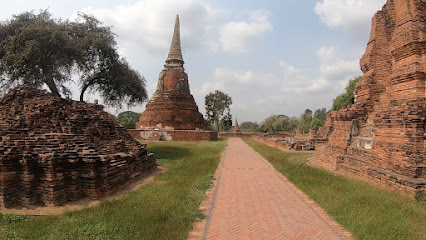
Ayutthaya
Explore Ayutthaya, Thailand's ancient capital, where stunning ruins and rich culture create a unique historical experience for every traveler.
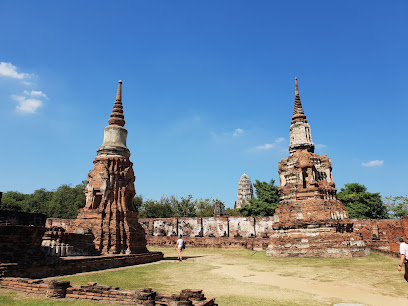
Unmissable attractions to see
Wat Mahathat
Explore the captivating ruins of Wat Mahathat in Ayutthaya, where history, spirituality, and stunning architecture converge in a breathtaking experience.
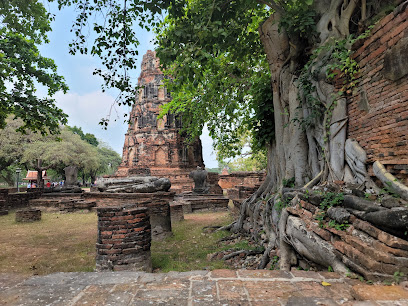
Ayothaya Floating Market
Discover the vibrant charm of Ayothaya Floating Market, a cultural gem in Thailand offering unique crafts, delicious food, and unforgettable experiences.
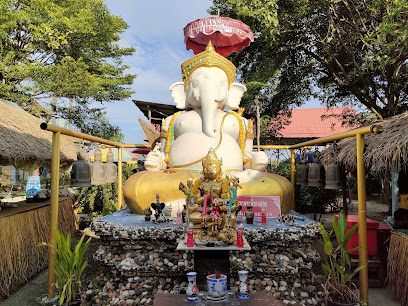
Wat Na Phra Meru Rachikaram
Discover the tranquil beauty and rich history of Wat Na Phra Meru Rachikaram, a captivating Buddhist temple in Ayutthaya, Thailand.
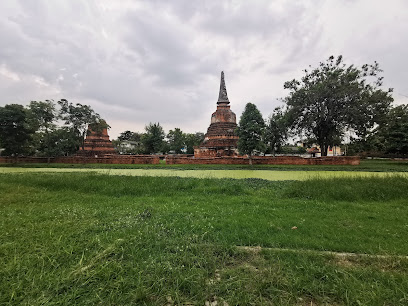
Wihan Phra Mongkhon Bophit
Discover the spiritual beauty and historical significance of Wihan Phra Mongkhon Bophit, a must-visit Buddhist temple in Ayutthaya, Thailand.
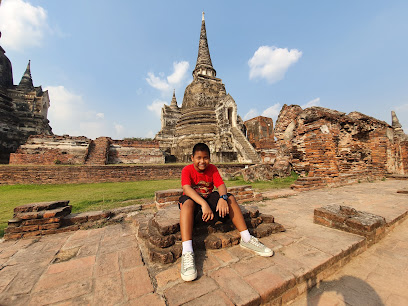
Wat Thammikarat
Discover the serene beauty and historical significance of Wat Thammikarat, an ancient Buddhist temple in Ayutthaya, Thailand.
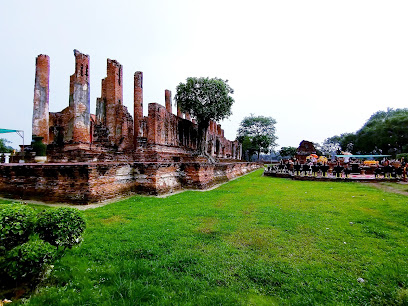
Bueng Phra Ram Park
Explore the serene beauty of Bueng Phra Ram Park, a state park blending nature and history in the heart of Ayutthaya, Thailand.
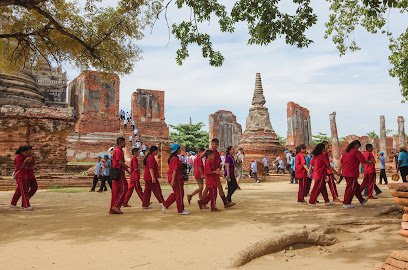
Wat Kasattrathirat Worawihan
Experience the serene beauty and rich cultural heritage of Wat Kasattrathirat Worawihan in Ayutthaya, a must-visit Buddhist temple for every traveler.
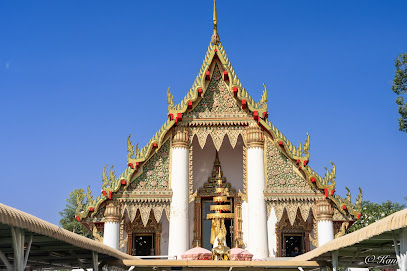
Wat Phra Ngam (Portal of Time)
Discover the enchanting Wat Phra Ngam, a historical landmark in Ayutthaya, where nature intertwines with rich Thai heritage and spirituality.
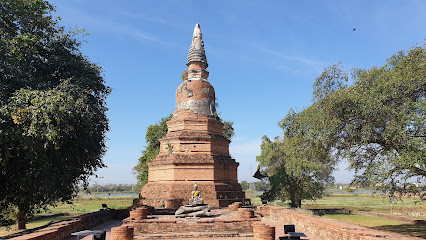
Essential places to dine
Pae Krung Kao Restaurant
Experience authentic Thai flavors at Pae Krung Kao Restaurant in Ayutthaya, where every dish tells a story of tradition and taste.
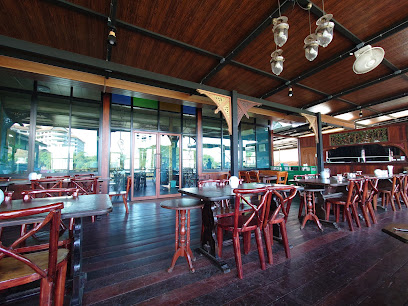
De Riva Ayothaya
Discover authentic Thai cuisine at De Riva Ayothaya, where every dish reflects rich cultural heritage amidst stunning riverside views.
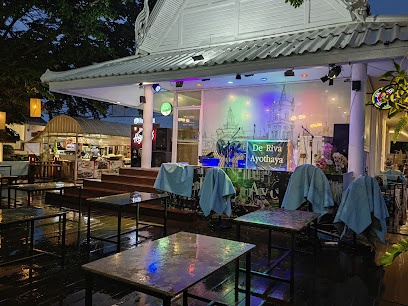
Satang
Experience authentic Thai flavors at Satang in Phra Nakhon Si Ayutthaya – where tradition meets taste in a vibrant setting.
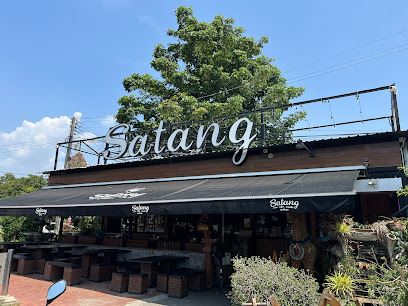
Malakor Kitchen and Cafe ร้านมะละกอ
Discover authentic Thai cuisine at Malakor Kitchen and Cafe in Ayutthaya – a delightful dining experience filled with rich flavors.
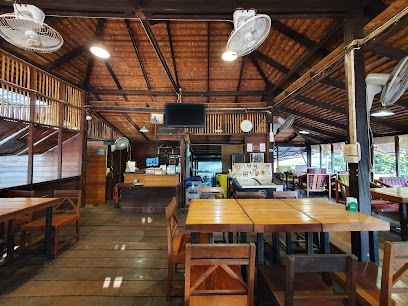
Ayutthayarom Restaurant
Experience authentic Thai cuisine at Ayutthayarom Restaurant in Ayutthaya - where tradition meets taste in every dish.
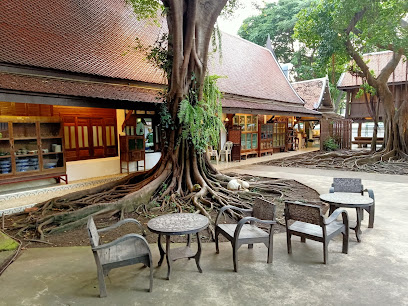
Sukunya Somtum
Discover authentic Thai flavors at Sukunya Somtum in Phra Nakhon Si Ayutthaya - where tradition meets affordability.
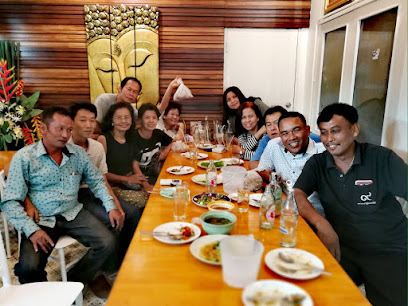
Baan Kun Pra
Discover authentic Thai flavors at Baan Kun Pra in Ayutthaya – where tradition meets culinary excellence.
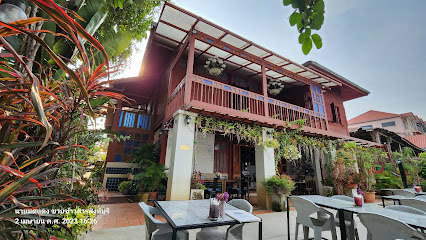
Earl Thai Restaurant
Experience authentic Thai flavors at Earl Thai Restaurant in Ayutthaya – where tradition meets taste in every dish.
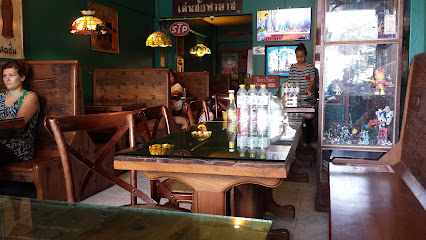
Tuk Restaurant ร้านข้าวต้มริมทาง
Experience authentic Thai street food at Tuk Restaurant in Phra Nakhon Si Ayutthaya - a culinary journey rich with flavor and culture.
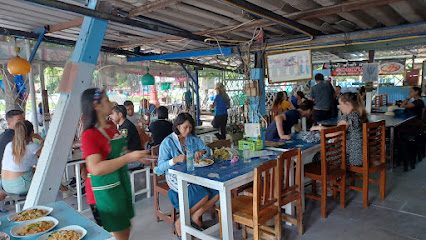
Eatery and Bar - ห้องอาหารอีเทอรี่ แอนด์ บาร์
Experience authentic Thai cuisine amidst breathtaking riverside views at Ayutthaya's premier dining destination.
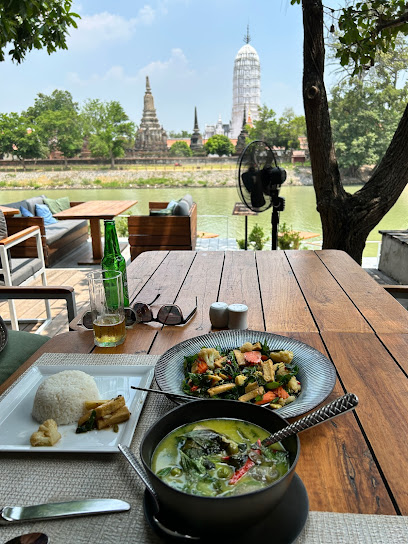
Markets, malls and hidden boutiques
Wat Mahathat
Discover the spiritual heart of Thailand at Wat Mahathat, a historic Buddhist temple with stunning ruins and a tranquil atmosphere.
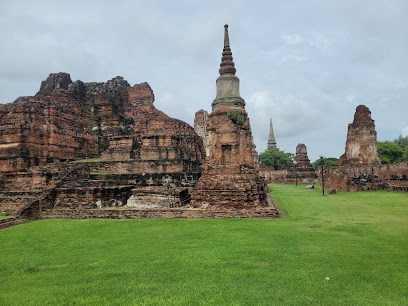
Ayothaya Floating Market
Discover the charm of Ayothaya Floating Market, where tradition meets flavor on serene waters in the heart of Thailand.
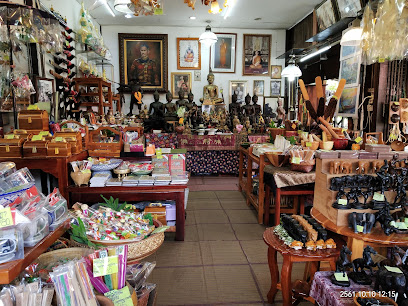
Wat Phra Si Sanphet
Explore the majestic Wat Phra Si Sanphet, a historic Buddhist temple in Ayutthaya, famed for its stunning architecture and rich cultural heritage.

Chao Phrom Market
Discover the lively Chao Phrom Market in Ayutthaya, where authentic Thai culture meets vibrant street food and unique local crafts.
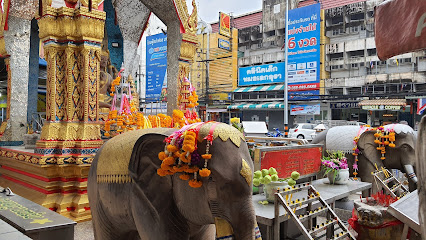
Kong Khong Market
Visit Kong Khong Market in Bang Pa-in for an authentic Thai shopping experience filled with culture, food, and vibrant local crafts.
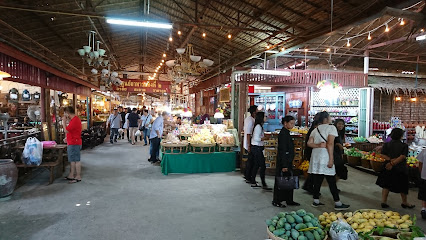
The Summer Coffee - Old Town
Experience the rich flavors of Ayutthaya's heritage at The Summer Coffee, the perfect spot to relax and recharge during your historical adventure.
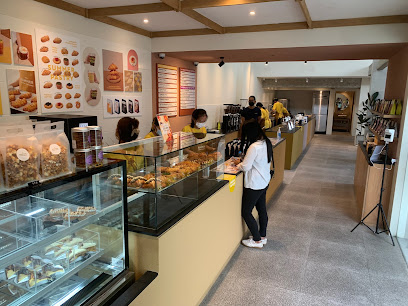
Homglin
Discover the charming Homglin coffee shop in Ayutthaya, where every cup tells a story and local flavors come to life.
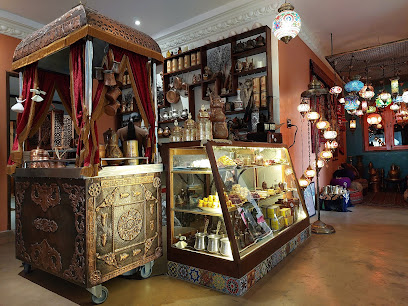
Ayutthaya Night Market
Immerse yourself in the rich culture and flavors of Thailand at Ayutthaya Night Market, a vibrant destination for food, crafts, and local entertainment.
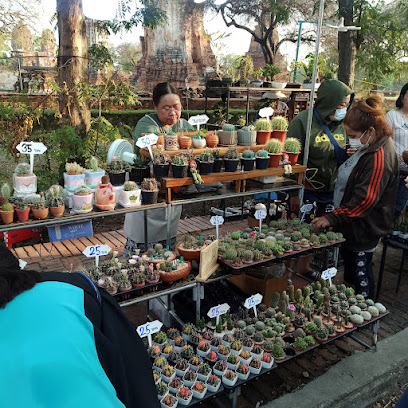
Coffee+
Discover the charm of Coffee+, a cozy café in Ayutthaya offering delightful brews and a serene atmosphere across from Wat Mahathat.
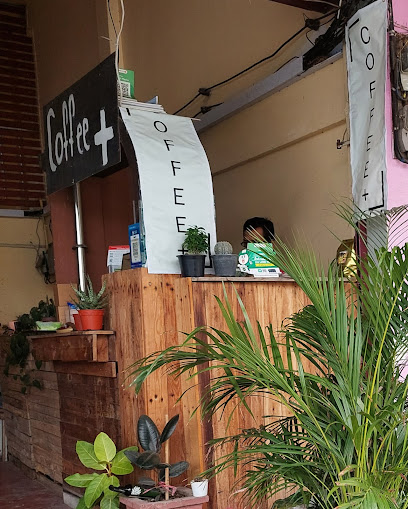
SAAN
Discover unique souvenirs that capture the essence of Ayutthaya at SAAN, a charming store near the historical Wat Mahathat.
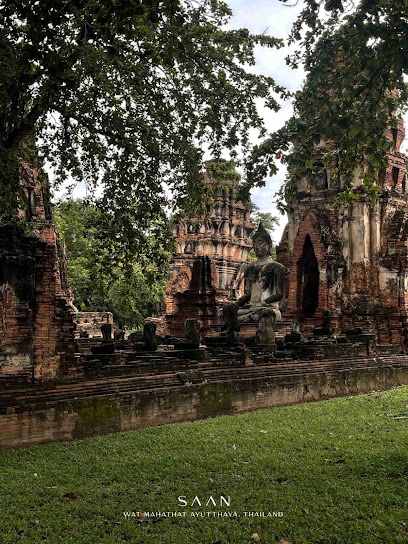
ร้าน สยาม ของที่ระลึกวัดมหาธาตุ
Discover unique souvenirs reflecting the rich cultural heritage of Thailand at ร้าน สยาม ของที่ระลึกวัดมหาธาตุ in Ayutthaya.
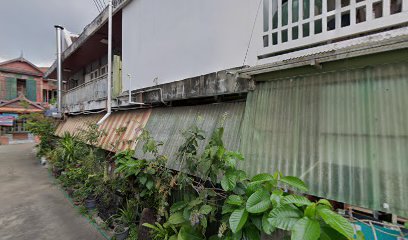
Essential bars & hidden hideouts
BROWN ALE AYUTTHAYA
Explore the vibrant nightlife at Brown Ale Ayutthaya, where local and international beers meet the charm of Thailand's ancient city.
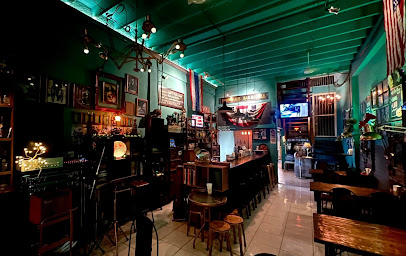
Lung nuat bar
Discover Lung Naut Bar in Phra Nakhon Si Ayutthaya for an authentic blend of Thai cuisine and vibrant nightlife in a historical setting.
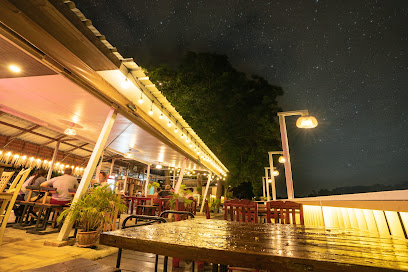
Planet Earth Bar & Restaurant
Experience the vibrant nightlife at Planet Earth Bar & Restaurant in Phra Nakhon Si Ayutthaya, where great drinks and a lively atmosphere meet.
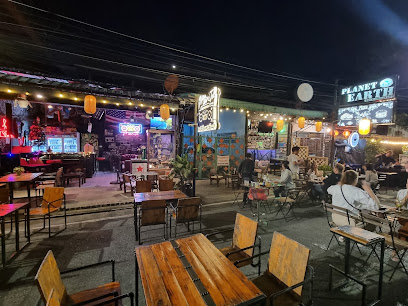
The Gravity Ayutthaya
Discover the vibrant nightlife at The Gravity Ayutthaya, where exquisite drinks and a lively atmosphere create unforgettable moments in the heart of Thailand's historical city.
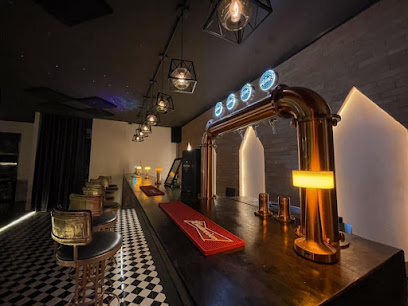
Khaosan Bar Ayutthaya
Discover Khaosan Bar Ayutthaya, where vibrant nightlife meets rich history in Thailand's ancient capital.
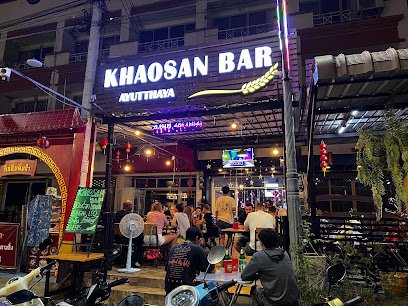
Red Cup Bar&Restaurant
Experience the vibrant flavors of Thailand at Red Cup Bar & Restaurant, the perfect spot to unwind in historic Ayutthaya.
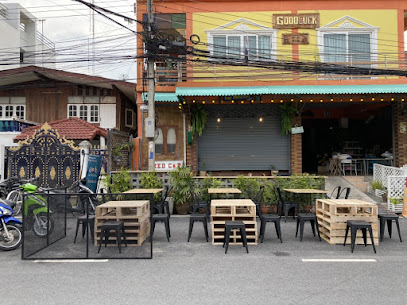
คงเจริญ Bar & Rooftop
Unwind at คงเจริญ Bar & Rooftop, where stunning views and refreshing drinks meet the vibrant culture of Ayutthaya.
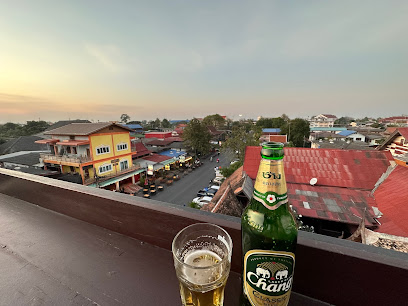
SEEN
Discover the vibrant nightlife at SEEN, a lively bar in Ayutthaya offering diverse drinks and a welcoming atmosphere for tourists.
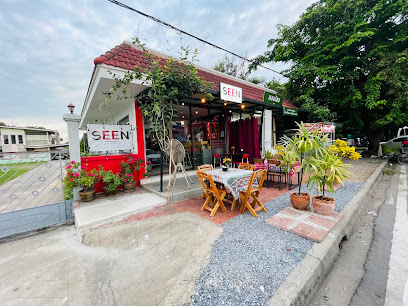
Monita Craft Beer & Beef
Experience the vibrant flavors of craft beer and beef in the heart of Ayutthaya at Monita Craft Beer & Beef, where local culture meets culinary excellence.
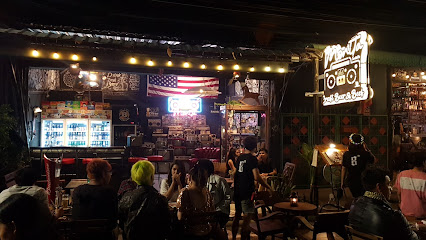
Malibu Ayutthaya (ร้านอาหาร ร้านนั่งชิล ร้านเหล้าอยุธยา)
Discover the perfect blend of dining and nightlife at Malibu Ayutthaya, where vibrant cocktails meet delightful cuisine in a lively atmosphere.
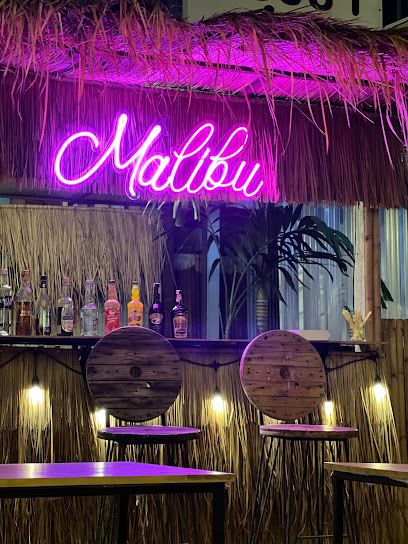
Kith
Experience the vibrant nightlife at Kith, a lively bar in Ayutthaya, offering refreshing drinks and a welcoming atmosphere for all travelers.
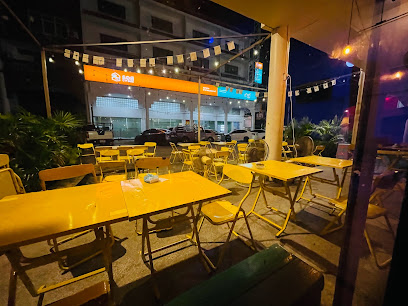
Local Phrases
-
- Helloสวัสดี
[sawatdee] - Goodbyeลาก่อน
[la kon] - Yesใช่
[chai] - Noไม่
[mai] - Please/You're welcomeโปรด/ยินดีต้อนรับ
[proat/yindee ton rap] - Thank youขอบคุณ
[kop khun] - Excuse me/Sorryขอโทษ
[kor toht] - How are you?สบายดีไหม
[sabai dee mai] - Fine. And you?สบายดีค่ะ คุณล่ะ
[sabai dee ka khun la] - Do you speak English?คุณพูดภาษาอังกฤษได้ไหม
[khun poot paa saa angkrit dai mai] - I don't understandฉันไม่เข้าใจ
[chan mai kao jai]
- Helloสวัสดี
-
- I'd like to see the menu, pleaseขอดูเมนูหน่อยค่ะ
[kor duu menu noi ka] - I don't eat meatฉันไม่กินเนื้อ
[chan mai kin neuua] - Cheers!ชนเครื่องดื่ม
[chon kreung deum] - I would like to pay, pleaseขอจ่ายเงินหน่อยค่ะ
[kor jai ngeun noi ka]
- I'd like to see the menu, pleaseขอดูเมนูหน่อยค่ะ
-
- Help!ช่วยด้วย
[chuai duai] - Go away!ไปทางนั้น
[bpai tang nan] - Call the Police!โทรตำรวจ
[toh tam ruat] - Call a doctor!โทรหมอ
[toh mor] - I'm lostฉันหลงทาง
[chan long tang] - I'm illฉันไม่สบาย
[chan mai sabai]
- Help!ช่วยด้วย
-
- I'd like to buy...ฉันอยากซื้อ...
[chan yak seuu...] - I'm just lookingฉันเพียงดูอย่างเดียว
[chan piang du yang diao] - How much is it?ราคาเท่าไหร่
[ra kha tao rai] - That's too expensiveแพงเกินไป
[paeng geen pai] - Can you lower the price?ลดราคาได้ไหม
[lot ra kha dai mai]
- I'd like to buy...ฉันอยากซื้อ...
-
- What time is it?เวลาเท่าไหร่
[wee la tao rai] - It's one o'clockเวลาหนึ่งโมง
[wee la neuung mong] - Half past (10)สามทุ่ม
[sam thum] - Morningเช้า
[chao] - Afternoonบ่าย
[bai] - Eveningเย็น
[yen] - Yesterdayเมื่อวาน
[meua wan] - Todayวันนี้
[wan nee] - Tomorrowพรุ่งนี้
[proong nee] - 1หนึ่ง
[neung] - 2สอง
[song] - 3สาม
[sam] - 4สี่
[see] - 5ห้า
[ha] - 6หก
[hok] - 7เจ็ด
[jet] - 8แปด
[paet] - 9เก้า
[gao] - 10สิบ
[sip]
- What time is it?เวลาเท่าไหร่
-
- Where's a/the...?...อยู่ที่ไหน
[... yu tee nai] - What's the address?ที่อยู่คืออะไร
[tee yu keu a rai] - Can you show me (on the map)?ช่วยชี้บนแผนที่หน่อยได้ไหม
[chuai chee bon paen tee noi dai mai] - When's the next (bus)?รถเมล์ตอนถัดไปเวลาเท่าไหร่
[ro mel dton tud pai wee la tao rai] - A ticket (to ....)ตั๋วไป...
[dtua bai...]
- Where's a/the...?...อยู่ที่ไหน
History of Wat Mahathat
-
Wat Mahathat, or the Temple of the Great Relic, was established in the 14th century during the reign of King Ramathibodi I, the founder of the Ayutthaya Kingdom. It served as the spiritual center of the city and was an important site for the royal family and the Buddhist community. The temple housed sacred relics of the Buddha, which attracted pilgrims and scholars from across the region.
-
The architecture of Wat Mahathat is a prime example of the Khmer influence on Thai temple design, featuring a central stupa surrounded by numerous smaller chedis and monastic structures. The temple complex was known for its intricate stone carvings and a large Buddha statue that would have been a focal point for worshippers. The layout of the temple reflects the cosmological beliefs of the time and the importance of Buddhist practices in society.
-
During the height of the Ayutthaya Kingdom, Wat Mahathat not only served as a religious center but also as a cultural hub where art, literature, and philosophy flourished. It played a vital role in the education of monks and the dissemination of Buddhist teachings. The temple's proximity to the royal palace made it an essential venue for royal ceremonies and public gatherings.
-
The fall of Ayutthaya in 1767 to Burmese forces led to significant destruction of Wat Mahathat, resulting in the loss of many of its structures and artifacts. The temple, once a thriving center of Buddhism, fell into disrepair as the city was abandoned. However, its remnants provided insight into the grandeur of the Ayutthaya period and the resilience of Thai culture.
-
In the 20th century, efforts were made to preserve and restore Wat Mahathat as part of Thailand's national heritage. The site is now a UNESCO World Heritage Site and attracts tourists and historians alike. Ongoing archaeological work continues to uncover more about its past, and the temple remains a focal point for cultural activities and studies related to the history of Ayutthaya.
Wat Mahathat Essentials
-
Wat Mahathat is located in the heart of Ayutthaya, easily accessible from other neighborhoods and attractions. From Ayutthaya Railway Station, you can take a short tuk-tuk or bicycle ride, which typically costs around 60-100 THB. If you are coming from Bangkok, you can take a train from Hua Lamphong Station to Ayutthaya, which takes about 1.5 to 2 hours. Alternatively, buses and minivans run regularly from various locations in Bangkok, taking approximately 2 hours. Once in Ayutthaya, Wat Mahathat is within walking distance of many other historical sites.
-
Navigating Wat Mahathat is best done by bicycle, as it allows for flexibility and access to the surrounding archaeological sites. Many rental shops offer bicycles for around 50-100 THB per day. Walking is also a great way to explore, particularly since the ruins are close together. For longer distances, tuk-tuks are readily available and can be hired for short trips, while local songthaews (shared taxis) operate on fixed routes.
-
Wat Mahathat is generally safe for tourists, but standard precautions should be taken. Petty theft, such as pickpocketing, can occur in crowded areas. It’s advisable to avoid isolated areas after dark and to keep your belongings secure. While major incidents are rare, it's good to be aware of your surroundings. There are no specific high-crime areas reported around Wat Mahathat, but stay vigilant in crowded markets and tourist spots.
-
In case of emergency, dial 191 for police or 1669 for medical assistance. Hospitals and clinics are available in Ayutthaya, with the nearest being the Ayutthaya Hospital. Ensure you have travel insurance that covers medical emergencies. For minor ailments, pharmacies are accessible throughout the city. It's advisable to keep a list of emergency contacts handy, including your embassy's contact information.
-
Fashion: Do dress modestly when visiting Wat Mahathat; shoulders and knees should be covered. Don't wear revealing clothing or hats inside the temple grounds. Religion: Do respect the sacred nature of the site; speak quietly and avoid disruptive behavior. Don't climb on the ruins or touch sacred statues. Public Transport: Do be courteous to fellow passengers and offer your seat to the elderly. Don't eat or drink on public transport. Greetings: Do greet locals with a polite 'Sawasdee' and a slight bow. Don't engage in overly familiar behavior with strangers. Eating & Drinking: Do try local street food nearby and drink bottled water. Don't litter or consume food in temple areas.
-
To experience Wat Mahathat like a local, visit early in the morning to avoid crowds and enjoy the serene atmosphere. Engage with local vendors selling handmade crafts and traditional snacks. Consider joining a guided tour for in-depth historical insights. Don't miss the nearby local markets for authentic Thai cuisine and souvenirs, and try to learn a few basic Thai phrases to enhance your interactions with locals.
Nearby Cities to Wat Mahathat
-
Things To Do in Bangkok
-
Things To Do in Samut Prakan
-
Things To Do in Kanchanaburi
-
Things To Do in Pattaya
-
Things To Do in Nakhon Ratchasima
-
Things To Do in Rayong
-
Things To Do in Hua Hin
-
Things To Do in Trat
-
Things To Do in Sukhothai
-
Things To Do in Battambang
-
Things To Do in Loei
-
Things To Do in Siem Reap
-
Things To Do in Koh Kong
-
Things To Do in Udon Thani
-
Things To Do in Hpa-An








